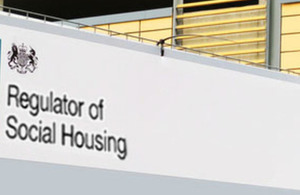We need business to help us get girls learning – and change the world: article by Baroness Sugg
Coronavirus has changed the world. We are facing the biggest triple threat of our lifetimes, with unprecedented economic, health and education crises.
While there has been much focus on the first two, the latter cannot be overlooked. At the height of school closures due to coronavirus, 1.6 billion children were out of school globally with girls disproportionately affected.
Millions of girls across the world are now at risk of never returning to the classroom.
This educational catastrophe has economic implications too. Lost learning due to the pandemic could result in students around the world missing out on around £12,000 in reduced wages over their lifetimes. Altogether, we could lose one-tenth of global GDP.
That would be catastrophically detrimental to the next generation of families, businesses, and nations everywhere. It would threaten our ability to end poverty, support entrepreneurs, and boost economic growth.
And without action, it will get worse.
As the future employers of the next generation of women and drivers of growth in vulnerable countries, businesses have a vital role to play in confronting this challenge, tearing down obstacles that keep girls from learning and achieving their potential.
In many of the world’s poorest and most unstable countries, girls’ education is threatened by risks, which include child marriage, violence, the need to take on domestic work and lack of access to quality learning.
Remove the barriers and a powerful force is unleashed: a child whose mother can read is 50 per cent more likely to live past the age of five, twice as likely to attend school themselves and 50 per cent more likely to be immunised against common diseases. A girl with one year of additional schooling will increase her earnings by a fifth.
For businesses, giving girls quality education is not just the right thing to do — it is the smart thing to do. Educating girls creates thriving and diverse workforces. It creates the leaders of the future: scientists that will fight climate change and engineers that will develop cutting-edge technology. It prevents child marriage that keeps women out of the workplace. It boosts incomes, builds productivity and strengthens economies.
That’s why we are calling on businesses to join us in this fight. We’ve already seen the impact that can be made.
British satellite communications company Avanti has partnered with Project iMlango, an e-learning programme in Africa, backed by UK aid, to deliver broadband connectivity that ensures education content can reach 245 remote and rural schools across Kenya. Since the coronavirus outbreak, the iMlango project has given more than 68,000 girls an opportunity to keep up with their learning while schools were closed.
We have also partnered with Unilever, one of the largest companies in the UK, to launch an information campaign in 37 countries, from Syria to South Africa, to make sure people wash their hands with soap regularly to stop the spread of coronavirus.
When businesses take action, we can educate more girls, more quickly and more effectively. That’s why next year – during our G7 Presidency – the UK, Kenya and the Global Partnership for Education (GPE) will co-host a Global Education Summit which will unite businesses, world leaders and charities in a shared endeavour to educate more children and build back better from coronavirus.
As part of this, the UK and GPE are launching a series of events from this week to bring together business leaders from British, African and international companies, alongside Education Ministers from developing countries, such as Kenya and Nigeria, to establish how we can work together to tackle the global learning crisis.
The UK, as a world leader on championing girls’ rights, is joining forces with major, influential brands such as HP, PWC, Ecobank and Econet, to discuss aligning companies’ sustainability initiatives with national education strategies of developing countries. This includes commitments from businesses to boost women and girls’ skills, empowerment, and financial education. Together, we’ll get more girls learning to unlock opportunity.
If we educate one child, we can change one life. If we educate millions, we can change the world.
